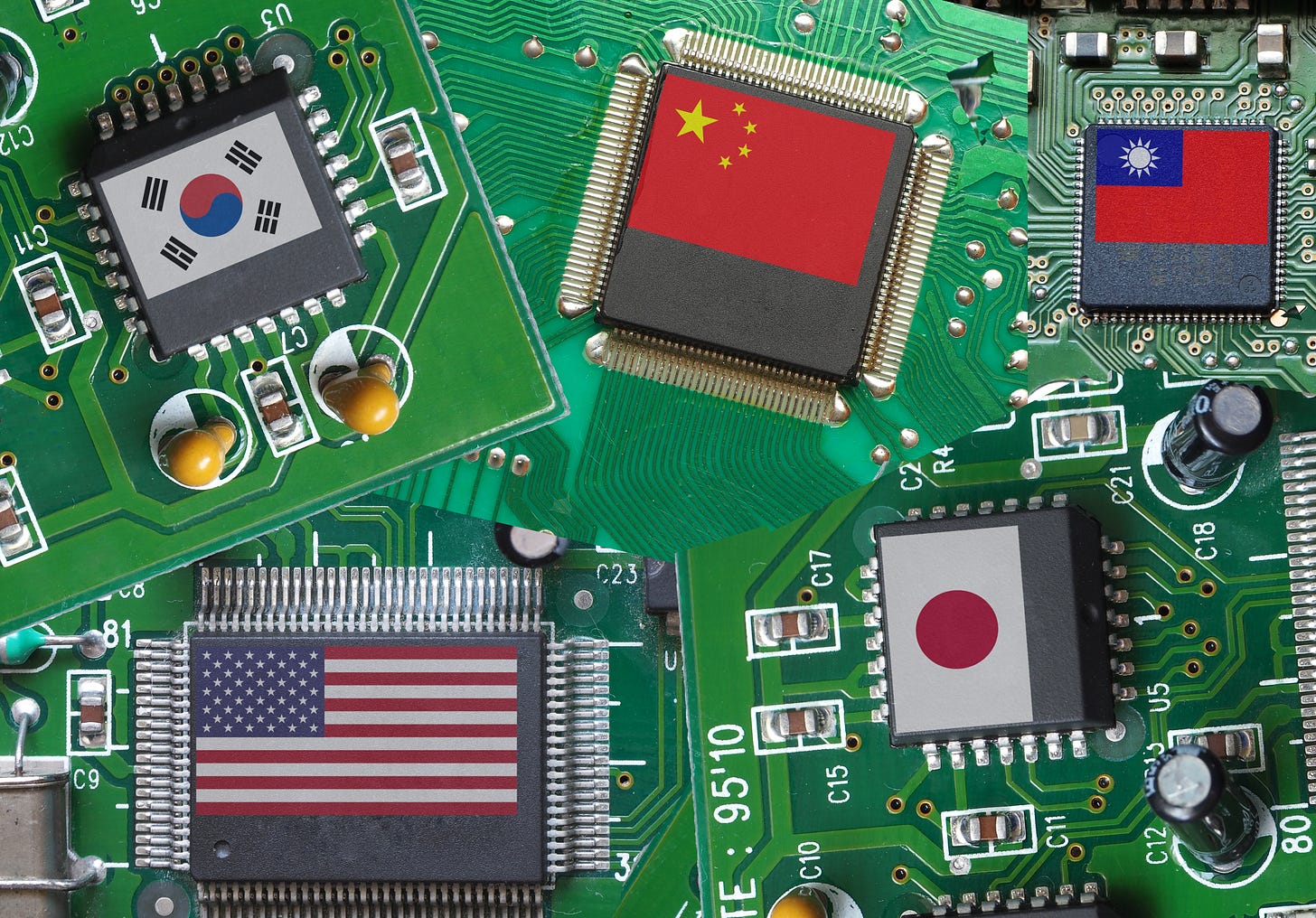Weeks after Beijing announced the ban on critical materials exports to the US as a response to the Biden Administration’s restriction on semiconductor production equipment and software and added more than 140 Chinese entities to the Entity List, China initiated an anti-trust investigation on Nvidia. What’s the likely move of the US and what’s the impact of China’s counteractions so far?
Notably, on the same day that Beijing announced the critical materials export curbs, four industry associations in China immediately warned that Chinese companies should be wary of purchasing US chips, which they claimed "are no longer safe."
Interestingly, the US Department of Commerce’s Bureau of Industry and Security (BIS) also released a report on the use of mature-node semiconductor chips, or legacy chips, in supply chains that directly or indirectly support US critical infrastructure. The report, leveraging data collected under the Defense Production Act (DPA), highlights significant issues in semiconductor supply chains. Many companies selling products with legacy chips lack visibility into their origins, with half unable to determine if China-based foundries make their chips. Despite this, over two-thirds of US companies' products contain chips from China, though these are a small fraction of the total chips used. Additionally, China's capacity expansion is creating pricing pressures that could undermine the competitiveness of U.S. chip suppliers.
“We are committed to creating a level playing field in the semiconductor industry to ensure that US companies, and those in like-minded countries, can compete. But unfair practices from the PRC to expand legacy chip production will create significant challenges for U.S. economic and national security,” said Under Secretary of Commerce for Industry and Security Alan F. Estevez, emphasizing that more action is needed from the private sector to build a strong, diverse, and resilient semiconductor supply chain.
The downturn in the consumer electronics market and the fact that ambitious expansion in capacities by Chinese memory manufacturers have sent the contract price of standard DRAM products down 35% since July, the biggest reason being oversupply, according to TrendForce. The exemption of CXMT from the Entity List is highly controversial. Some said the BIS’ decision to include CXMT has reportedly been intervened by Japan to protect semiconductor equipment sales, and some speculated that it was Micron that lobbied the US government not to do so because it could be the target of China’s reprisal if CXMT is black listed.
If either rumor is true, it would not be fair to American chip makers and ASML that complied with equipment sales restrictions, or to all other memory product manufacturers, such as Samsung, SK Hynix, and smaller ones such as Microchips, Nanya Technology, Winbond, etc., whose revenues took hard hit by legacy logic chips and memory price drops.
CXMT has expanded DRAM production by almost 3 times to 200,000 wafers per month this year.
New York Times, citing government documents and unnamed sources, said the Biden administration, with just weeks left in its term, is preparing an investigation into Chinese-made legacy chips that could ultimately end in tariffs or import bans.
Impact of Anti-Trust Probe on Nvidia
Since China’s anti-trust probe is based on an alleged violation of the conditions set for approving Nvidia’s acquisition of Mellanox in 2020, Nvidia will need to prove that its dominating position in China’s AI chip market is not a result of its Mellanox acquisition (such as combining NVLink with GB200 as a packaged sales or excluding competition of other companies).
China has stockpiled many Nvidia chips for AI training even though Nvidia can only sell downgraded versions of its AI chips in the country due to Washington's export controls aimed at curbing China's advances in AI.
TF International Securities tech analyst Ming-chi Kuo predicts that China’s antitrust probe into NVIDIA may focus on the company's dominance in AI chips, its bundling of AI chips with InfiniBand technology, and potential discriminatory practices against Chinese customers. Drawing on historical cases like Qualcomm and DRAM price-fixing, the investigation could last over a year and serve as a bargaining tool in U.S.-China geopolitical tensions. While China represents only 5% of NVIDIA’s data center revenue, the immediate financial impact is expected to be minimal, with any stock volatility likely to be short-lived. However, investors should brace for potential future investigations into NVIDIA’s market practices, including its use of CUDA.
The escalating US-China trade battle underscores the fragility and interconnectedness of the global semiconductor supply chain. As both sides leverage export controls, anti-trust investigations, and strategic market interventions, companies like Nvidia find themselves caught in the crossfire, facing complex challenges and heightened scrutiny. The anti-trust probe into Nvidia may be just the beginning of broader actions aimed at reshaping the tech landscape. Moving forward, the industry must navigate this volatile environment with caution, balancing innovation and compliance while preparing for potential ripple effects. Ultimately, the resolution of these conflicts will significantly shape the future of global technology leadership.




NYT reported on Dec 16: https://www.nytimes.com/2024/12/16/business/economy/biden-china-chips-investigation.html?searchResultPosition=4